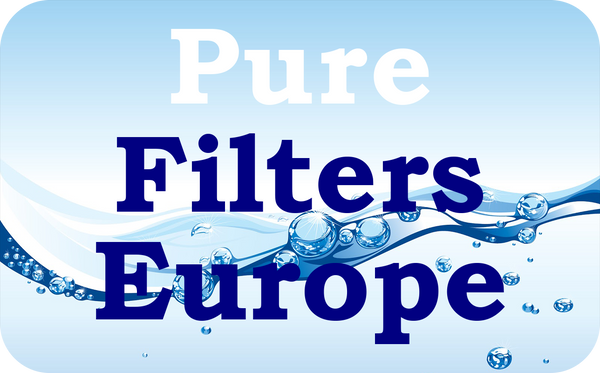Softened water in a water purifier
To ensure optimal use and extend the life of your Pure Filters water purifier, it is best to avoid softened water, which may contain a high concentration of sodium and other unwanted minerals. Instead use water from untreated natural sources to ensure optimal purification and better drinking water quality.
Collapsible content
Can I use softened water in my water purifier?
It is generally not recommended to use softened water in a Pure Filters water purifier because the salts used in a water softener can alter the chemical composition of the softened water.
This could compromise the effectiveness of the Coldstream FTO+ filters by removing some beneficial minerals while allowing other contaminants to pass through, as well as affect the Coldstream FTO+ filter’s media's ability to retain impurities, compromising the quality of the water produced.
What impact does sodium have on the Coldstream FTO+ filter’s filtration process?
The sodium in the softened water may eventually react with the filter components of the water purifier, causing the filter to deteriorate or decrease in efficiency over time, which could compromise the quality of the purified water.
Does softened water change the taste of purified water?
The sodium salts used to soften water may eventually react with the filter components of the Coldstream FTO+ filters, causing the filter to deteriorate or decrease in efficiency over time which could compromise the quality of the purified water.
Not all water softeners are created equal and it is important to consider that softened water may contain an increased amount of sodium salts which can significantly alter the taste of purified water.
This increased presence of sodium can give water a slightly salty or metallic aftertaste, which can compromise the overall taste experience of purified water.
This can be especially problematic for people who are sensitive to taste or for those who are looking for neutral, fresh tasting water. The use of softened water in the purification process can decrease the pleasure of drinking water. Altered water taste could also discourage regular use of the water purifier compromising the ability to maintain a healthy and regular water intake.
In conclusion, although softened water may be beneficial household appliances such as the dishwasher or washing machine, its use as part of a water purification process can lead to a significant alteration in the taste of purified water, thus impacting its suitability for human consumption.
Does the use of softened water have an impact on the durability of the water purifier?
Yes, when it comes to the proper functioning of your water purifier, regular use of softened water can lead to the accumulation of minerals and residues in its internal components.
This gradual build-up can disrupt the filtration process and compromise the overall effectiveness of the purifier. As a result, this can reduce the useful life of the water purifier, thus requiring more frequent maintenance and possibly repairs.
How can I maximize the performance of my Pure Filters water purifier?
To improve the effectiveness of your water purifier it is advisable to use water directly from the source, such as tap water, rain water or well water in order to avoid complications related to softened water.
Most water softeners are equipped with a bypass valve or a device to get water before it passes through the softener. Using accessories such as a stainless steel bucket can make it easier to fill your water purifier.
